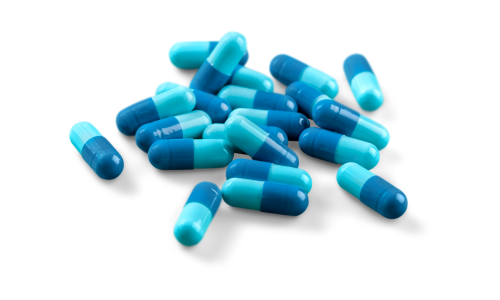
The Crucial Role of KPIs in Manufacturing: Ensuring Quality in Capsule Production
In the dynamic world of manufacturing, where precision and efficiency are paramount, Key Performance Indicators (KPIs) serve as a vital compass, guiding companies towards achieving their goals. This rings especially true in the manufacturing of capsules, where strict adherence to KPIs is essential for maintaining top-tier quality and meeting industry standards. This article delves into the significance of KPIs in the encapsulation process, shedding light on four key aspects: the performance of empty capsules, machine performance, formula performance, and operator performance.
Performance of Empty Capsules
The quality of empty capsules is a fundamental factor in the encapsulation process. Any deviation from standards can lead to serious issues such as inconsistent dosages or even compromised patient health. To ensure high-quality capsules, manufacturers must implement KPIs to assess aspects like size uniformity, moisture content, and visual defects. When these KPIs are consistently met, the capsules produced will be reliable, making them suitable for pharmaceutical and nutraceutical applications.
To treat the performance of empty capsules as a key aspect of the encapsulation process, manufacturers should:
– Invest in advanced capsule production equipment to maintain uniformity and minimize defects. (Our KLS-225 is a top marvel of engineering when it comes to advanced encapsulation equipment)
– Implement regular quality control checks to verify capsule size, moisture content, and overall quality.
– Create detailed guidelines for capsule storage to prevent moisture-related issues.
Performance of Machine
The heart of any capsule manufacturing operation is the encapsulation machine. Its efficiency and reliability significantly impact overall productivity. KPIs help in evaluating machine performance, assessing parameters like output rate, downtime, and changeover times. When the machine operates within defined KPI limits, it ensures consistent capsule production and minimizes disruptions in the manufacturing process.
To prioritize machine performance in capsule production:
– Schedule regular maintenance to prevent unexpected downtime and ensure the machine operates at its full potential.
– Monitor KPIs like output rate, machine efficiency, and changeover times, adapting production schedules accordingly.
– Invest in advanced technology to reduce the risk of mechanical failures and minimize downtime.
Performance of Formula
The formula used in capsule production plays a critical role in product efficacy and consistency. KPIs for formula performance typically involve assessing factors like content uniformity, particle size distribution, and dissolution rates. Meeting these KPIs guarantees that the capsules contain the correct dosage and that the active ingredients are released effectively in the body.
To ensure formula performance is maintained as a top priority:
– Continuously improve and fine-tune formulas to optimize capsule content uniformity.
– Regularly test dissolution rates and other performance-related factors to ensure quality control.
– Implement a robust quality assurance process to maintain formula consistency.
Performance of Operator
In any manufacturing process, the role of the operator is pivotal. Operators are responsible for the proper functioning of machines, adherence to formulas, and ensuring the quality of capsules. KPIs for operator performance can include factors like error rates, adherence to safety protocols, and training proficiency. When operators consistently meet these KPIs, it leads to efficient production and ensures the overall quality of capsules.
To emphasize operator performance as a critical component of encapsulation:
– Provide comprehensive training programs for operators, including safety and quality control training.
– Establish error reporting and resolution procedures to minimize mistakes and improve efficiency.
– Reward and acknowledge outstanding operator performance to boost morale and motivation.
In conclusion, KPIs are the backbone of quality control in the manufacturing of capsules. They guide manufacturers in maintaining the performance of empty capsules, machines, formulas, and operators. By consistently meeting KPI benchmarks in each of these areas, companies can produce reliable and high-quality capsules, ensuring patient safety and satisfaction. With a proactive approach, adherence to KPIs can be elevated to the status of a keystone in the encapsulation process, cementing its role in the production of quality pharmaceutical and nutraceutical products.
